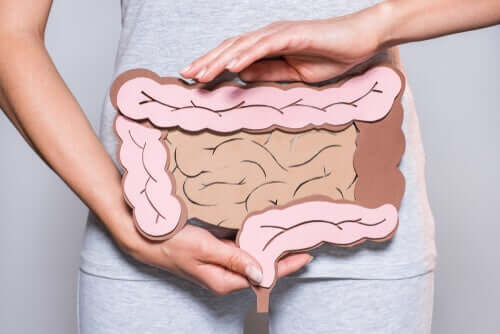The digestive system is one of those that respond more easily to emotional states, it is not uncommon for a person impressed by excess to vomit, feel nervous and have stomach pain, so in the face of intestinal difficulties we begin to speak. about mental digestion.
Do we currently know that there is a link between the intestine and its functioning?And the brain. It is not uncommon to refer to the gut as the “second brain”. The gut is the only organ in the body that works completely independently, i. e. it doesn’t need the brain’s permission to do what it does.
- The intestine obeys the enteric nervous system (SNE).
- Which is a bypass of the autonomous system.
- Has its own neural circuits.
- But communicates with the brain through the sympathetic and parasympathetic systems.
- This complex structure makes the mind and digestion have a special connection.
- And this is what is said of mental digestion.
“There are many mortals who cannot digest happiness! Happiness is not easily digestible, is it very indigestible?. – Miguel de Unamuno-
There is a very close relationship between the way thoughts and emotions are digested and the digestion of food, often experiences that are not mentally assimilated end up having difficulty assimilating food, it can be said that good mental digestion depends on good intestinal digestion.
On the other hand, there is a reverse process: digestive problems end up visibly altering our mood, this is due, in most cases, to the 90% of Serotonin being treated by the digestive system, while 10% is treated by the digestive system. Brain.
Remember that Serotonin is a neurotransmitter that has important effects on our mood. A high level of Serotonin creates a state of happiness; low level, depressive mood.
As we can see, there is a clear relationship between mental digestion and food digestion, one influences the other and both determine themselves.
One of the problems most associated with poor mental digestion is constipation. It looks like a sign that there are ideas, emotions or experiences from the past that are “blocked. “What happens in these cases is that the person is attached to this situation.
It is very common for people with constipation to spend a lot of time returning something to the past without getting rid of it, it can be a belief, a goal, an injury, a material object, etc.
The thing is, he comes back somehow, without any progress. From what is said, constipation can be said to be typical of those who tend to become obsessed.
Sometimes constipation is linked to unpronounced words, the person has stopped expressing what he thinks or feels out of fear or convenience, but silence begins to become a self-healing that causes this digestive problem, this evil is also very common among those who accumulate fears that are not based on the future.
Dr. Megan Rossi, an Australian specialist in gut health, says that one of the first factors seen in patients with bowel problems is their stress levels.
He says one of the recipes for those looking for digestive problems is to do meditation for 10 to 15 minutes a day, which ends up having beneficial health effects.
Diarrhoea is associated with sudden rejection of an idea, a lived feeling or a decision made previously, the mind reacts by expelling this and the body reacts with a constant evacuation, that is, inadequate mental digestion ends up resulting in poor intestinal digestion.
Diarrhoea, from a mental and physical point of view, is the opposite of constipation, in these cases there is a desire to get rid of something quickly because it generates rejection and guilt, the person does not want, cannot or cannot accept this part of the self, which ends up expressing himself physiologically.
As mentioned, it is worth paying a little more attention to our digestive symptoms, many times they can be the representation of an emotional discomfort, is it about exploring and identifying what we can not assimilate ?, do a good mental digestion?

